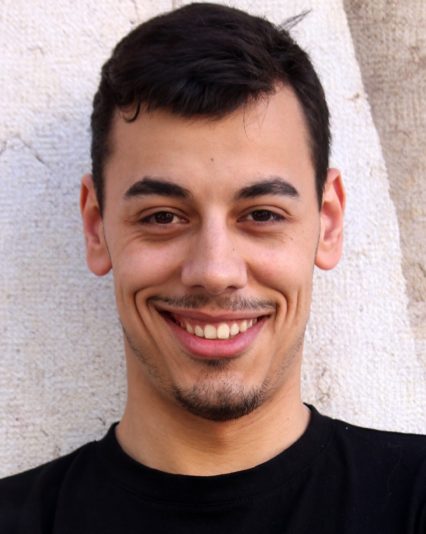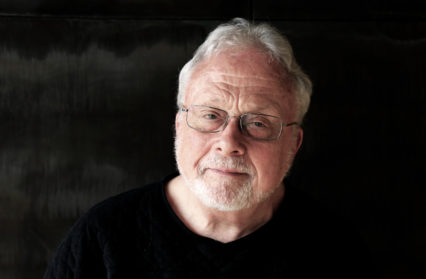Cath Barton attended the RWCMD to witness a concert in celebration of William Bolcom’s music and his upcoming 80th birthday featuring André Henriques.
Opportunities to hear the songs of the American composer William Bolcom do not come up in this country very often, so a concert to celebrate his forthcoming 80th birthday sounded as if it would be a great chance to hear material from across his extensive catalogue.
In fact this short lunchtime recital by Royal Welsh College of Music and Drama student André Henriques and pianist/vocal coach Michael Pollock would have been more accurately billed as a celebration of song settings of Petrarch’s Laura sonnets; these, by William Bolcom and others, formed the bulk of their programme.
I was rather surprised and not a little disappointed that the College had not chosen to present a wider range of songs from the composer, perhaps also giving a performance opportunity to more than one singer. After all, Bolcom is celebrated as someone who has embraced many styles in his song writing, working at the interface of popular and art music. He has also written extensively for his wife, mezzo Joan Morris, and I would have welcomed a female voice in the recital.

Perhaps baritone André Henriques has made a special study of this particular repertoire as part of his studies at the RWCMD. He did not tell us, indeed (curiously) left all the spoken introductions to Michael Pollock. So I can only speculate about the genesis of the programme, but it seemed to me to have come primarily from an academic impetus.
Competitors in the Cardiff Singer of the World Song Prize competition have not infrequently chosen to include one or more of Franz Liszt’s Petrarch settings. Clearly these are works that have much to challenge the developing singer from a technical point of view, and hence are good choices for showing vocal range and control.
André Henriques certainly demonstrated vocal power and consistency throughout his voice in the two Liszt songs in his programme, l’ vidi in terra angelici costumi (Petrarch Sonnet 156) and Oh! quand je dors, a setting of a poem by Victor Hugo referring to Petrarch’s obsession with Laura.
As for the word painting, both in these songs and in two settings of Petrarch by the twentieth-century composer Mario Castelnuovo-Tedesco with which the performers opened their programme, academic study would surely be revealing. In the concert hall the songs pass too quickly; one seems much like another. And when William Bolcom was commissioned by the American Liszt Society to write a song cycle for baritone in celebration of the 200th anniversary of Liszt, he did not depart substantially from the Romantic idiom.
Michael Pollock, in introducing the Bolcom Laura Sonnets (2010), told us that the composer had specifically asked his performers for nuance and restraint to point up the balance between Petrarch’s art and his personal feelings about being spurned by the woman he adored. However, for this listener at least, there was a lack of variety in this performance of these Petrarch settings. Perhaps if they had been interspersed with some of Bolcom’s short piano rags or bagatelles, for example, my ears would have appreciated better the subtleties of the song settings. As it was, the singer conveyed more outward aggression than inner anguish, and failed to engage my feelings in whatever personal torment he was attempting to convey.
André Henriques has a powerful baritone voice, which will find its place in a career on the operatic stage. He also showed another side of his voice in the two Bolcom cabaret songs which concluded this short lunchtime recital, Black Max and Fur (Murray the Furrier), demonstrating an ability to caress a text. I would have liked to have heard more of his lighter side. Those who devise concert programmes need to remember that, primarily, the audience wants to be entertained. Unfortunately we have to look to other concerts in this Bolcom 80th birthday year to hear more of the entertainment which is surely present in the composer’s wider song repertoire.
Header photo of William Bolcom by Philip Brunnader
To find out about upcoming events from RWCMD visit their website.
Cath Barton’s novella The Plankton Collector is due to be published in September 2018 by New Welsh Review under their Rarebyte imprint. She has been awarded a place on the 2018 Literature Wales Mentoring Scheme, to work on a collection of short stories inspired by the work of the sixteenth century Dutch artist Hieronymus Bosch.



 Enjoyed this article? Support our writers directly by buying them a coffee and clicking this link.
Enjoyed this article? Support our writers directly by buying them a coffee and clicking this link.







